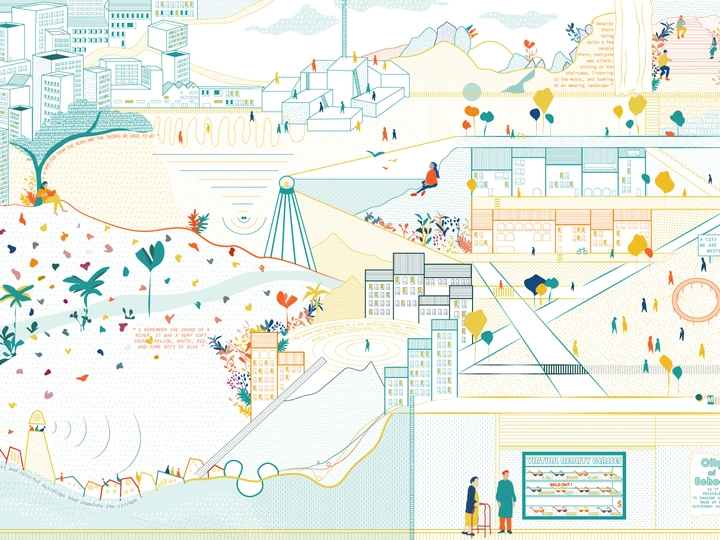Resistance in the Urban Battleground

As an architect, I inhabit multiple roles: I am a human being, an activist, and an advocate for social, environmental, and political justice. In addition to my professional identity, I see myself as a citizen and a foreigner, navigating both discrimination and privilege across multiple countries I call home. These diverse experiences deeply influence my perspective, guiding my approach to architecture and shaping my actions. I am passionate about embracing a holistic approach to architecture, one that integrates all facets of my identity and fosters collective and inclusive design for the betterment of society.
Several accomplishments reflect my commitment to these principles. I founded City of Echoes, a living lab promoting citizen engagement through a bottom-up approach, which was recognized as a finalist in the inaugural European Bauhaus awards. I have years of teaching experience spanning various materials. I worked as a teaching assistant at politecnico di Milano for two year. To broaden my knowledge I also participated in many summer schools and international workshops in Europe and the US. An avid reader, I am currently engrossed in "Architecture and Democracy" by Salvatore Settis and "The City of the Rich and the City of the Poor" by Bernardo Secchi. Additionally, my concept proposal, "An Inevitable Metamorphosis: A Hypothesis for Redefining Architecture," was recently shortlisted in the Superscape 2024 competition. I am interested in cities, democracy and social and environmental justice. My master's thesis called "Social Inclusion through Architecture" investigates how architecture can promote inclusion to the invisible.
I. The connection between cities and resistance dates back to ancient times. Cities provide fertile ground for resistance to flourish. In turn, resistance movements challenge injustices, disrupt power dynamics, and propel societal progress within urban environments. Without cities, the concentration of population, resources, and ideas necessary for social, political, and economic advancement would not have been possible. Similarly, without resistance, cities would lack the impetus needed to hold leaders accountable, engage citizens in decision-making, and enact changes that combat inequalities and promote justice.
II. Cities play a pivotal role in addressing global challenges as both the epicenter of these issues and potential sources of solutions. With over half of the world's population residing in urban areas and more migrating to cities, urbanization exacerbates the impact of environmental degradation, social inequality, and political instability. Addressing these crises within cities is paramount due to their scale, influence, innovation, and community engagement. Moreover, cities serve as crucibles of creativity and collaboration, where diverse populations converge to innovate and address pressing issues collaboratively.
III. It is universally desired for humanity to continue inhabiting this planet.
IV. To navigate these turbulent times, how about empowering cities with the ethos of resistance? Resistance as a guiding principle, a catalyst for action and a fundamental necessity. This form of resistance manifests in various ways: combating climate change, challenging social exclusion, and confronting political injustices. Rather than merely contemplating solutions, providing cities with the means to resist offers a proactive approach. This perspective rejects passivity and emphasizes the imperative for active engagement. Changes are inevitable, and we must actively participate. Through resistance, we reclaim agency and assert our ownership of urban spaces.